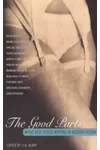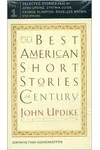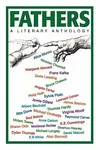Picture a bold American storyteller who turned the raw pulse of Jewish American life into literary gold—meet Philip Roth! Born in 1933 in Newark, New Jersey, Roth crafted novels that tackled identity, desire, and the human condition with unflinching honesty. From the scandalous Portnoy’s Complaint to the Pulitzer-winning American Pastoral, his work is a rollercoaster of wit and heart.
Roth didn’t just write stories; he dissected the American dream with a sharp pen and a mischievous grin. His provocative style and fearless exploration of taboo topics made him a literary giant, loved and debated until his passing in 2018. Ready to dive into his world?
The Making of Philip Roth
Philip Roth grew up in Newark’s tight-knit Jewish community, the son of first-generation American parents. His childhood in the Weequahic neighborhood, steeped in cultural pride and tension, shaped his vivid storytelling. After earning a degree from Bucknell University and a master’s from the University of Chicago, Roth burst onto the scene with his 1959 debut, Goodbye, Columbus, a sharp novella that won the National Book Award and marked him as a rising star.
Influenced by literary heavyweights like Saul Bellow and Franz Kafka, Roth blended humor, introspection, and social critique. His early teaching stints at universities fueled his discipline, but it was his Newark roots that gave his work its gritty, authentic edge.
Philip Roth’s Unforgettable Stories
Roth’s bibliography is a treasure trove of bold narratives. Portnoy’s Complaint (1969), a hilarious and shocking monologue of a young Jewish man’s sexual and cultural frustrations, became a cultural phenomenon, though its explicitness sparked controversy. American Pastoral (1997), which nabbed the Pulitzer Prize, follows Seymour 'Swede' Levov, a seemingly perfect man whose life unravels against the backdrop of 1960s America—think family drama meets national crisis.
Other gems include Sabbath’s Theater (1995), a raw exploration of mortality and desire, and The Human Stain (2000), which tackles race, identity, and political correctness. Roth’s style—marked by long, rhythmic sentences and biting humor—mirrors the complexity of his characters, often alter egos like Nathan Zuckerman, his fictional stand-in. His themes of Jewish identity, masculinity, and the clash between personal and societal expectations resonate across generations.
Roth wasn’t afraid to push boundaries, blending autobiography with fiction in a way that felt like a literary tightrope walk. His ability to capture the messiness of life made his novels both timeless and deeply personal.
Why Philip Roth Matters
Philip Roth’s impact on American literature is colossal. He gave voice to the Jewish American experience with unmatched depth, paving the way for writers exploring cultural identity. His fearless take on controversial topics—sex, religion, politics—challenged readers to confront uncomfortable truths. With multiple National Book Awards, a Pulitzer, and the Man Booker International Prize, Roth’s accolades reflect his influence.
Beyond awards, Roth’s legacy lies in his ability to make readers laugh, cringe, and think. His novels remain vital for anyone grappling with what it means to be human in a fractured world. From book clubs to classrooms, his work continues to spark debate and inspire.
About Philip Roth
- Born: March 19, 1933, Newark, New Jersey
- Died: May 22, 2018
- Key Works: Portnoy’s Complaint, American Pastoral, The Human Stain
- Awards: Pulitzer Prize (1998), National Book Award (1960, 1995), Man Booker International Prize (2011)
Snag American Pastoral or Portnoy’s Complaint and dive into Philip Roth’s electrifying world of wit, heart, and fearless storytelling!












































